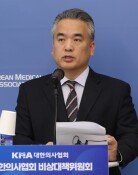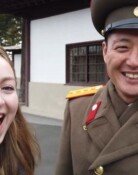N. Korea should step up to internationalize Kaesong Park
N. Korea should step up to internationalize Kaesong Park
Posted October. 28, 2013 07:47,
North Korea is reportedly planning to develop 13 to 14 development districts by attracting foreign capital worth 1.59 billion U.S. dollars. It seeks to attract foreign funds to its development districts in areas with relatively better social infrastructure in the fields of export processing, agriculture and tourism. Despite its securing nuclear weapons through three rounds of tests and successfully launched long-range missiles, North Korea will need to overcome economic hardship and secure dollars to be able to remain in power.
After being sworn in as the North Korean leader, Kim Jong Un said, I will ensure that people will no longer have to tighten their belts again due to hunger. Last year, Kim put in place June 28 administrative measure to improve economy allowing individual factories and companies to determine import and export on their own and to attract foreign investment. In May this year, the standing committee of the Supreme Peoples Assembly enacted the economic development district act, which calls for the establishment of special economic districts in cities and provinces, striving to attract foreign capital since.
Pyongyangs attempts have only faced repeated failures, however. The Rajin-Sonbong district has effectively been shut off, while an international symposium on the development of special economic districts held in Pyongyang on October 16 failed to draw notable attention from foreign investors. The policy for development of nuclear weapons and economic development in parallel, which North Korea pursues, will only spawn limited effect in attracting foreign capital. No capital in the world will want to invest freely in the worst rogue state that faces triple and quadruple sanctions by the international community. The Norths suspension of the inter-Korean Kaesong Industrial Park for more than 130 days by violating an inter-Korean agreement gave bad impression to the world as well.
The North allowed onsite parliamentary inspection at the Kaesong complex by 49 members of the Foreign Affairs and Unification Committee at the Souths National Assembly, scheduled at the end of this month. Pyongyang may seek to lead its allowance of the Souths parliamentary inspection at the complex to resumption of South Koreans tours to its Mount Kumgang, and to investment in its special economic districts. However, only when the North allows reunions of separated families, which it unilaterally shelved indefinitely, and proactively engage in negotiations to internationalize the Kaesong complex and resolve problems with three exchanges (travel, communication and customs clearance), then will its bid to resume Mount Kumgang tours and develop special economic districts make progress.
North Korea has taken a bold positive move by voluntarily repatriating six South Koreans, who entered the North. But the North denied visit by Rep. Cho Myong-chol of the ruling Saenuri Party, who is the first North Korean defector-turned parliamentarian in the South. Cho expressed regret, saying that If the North allowed my visit to the North, it would have been an opportunity (for the North) to show that it has changed, and is an organization that communicates with the international community. Cho may be a betrayer to the North Korean regime, but he is an honorable lawmaker of the Republic of Korea.







